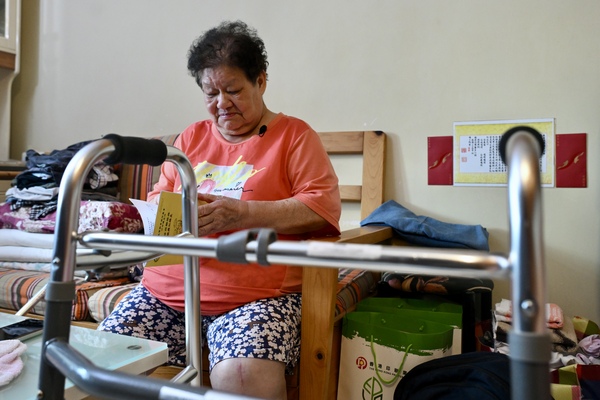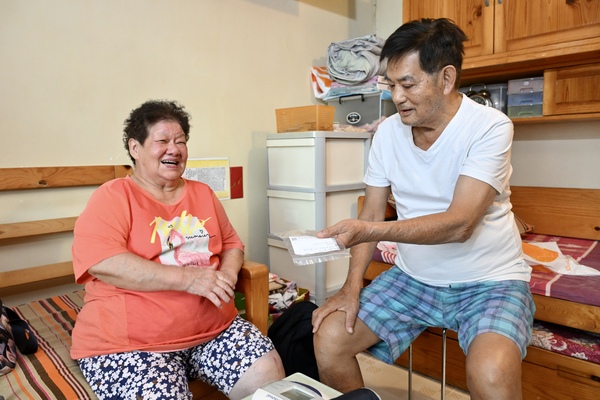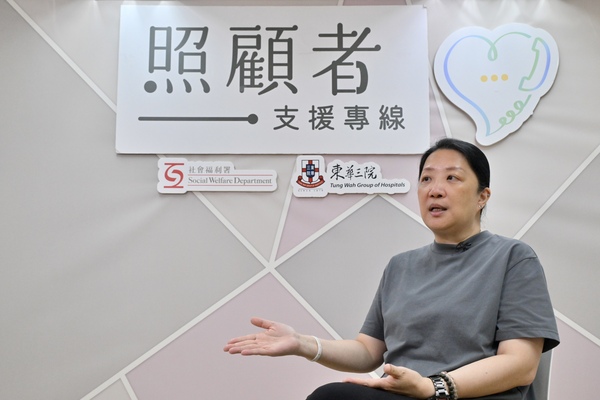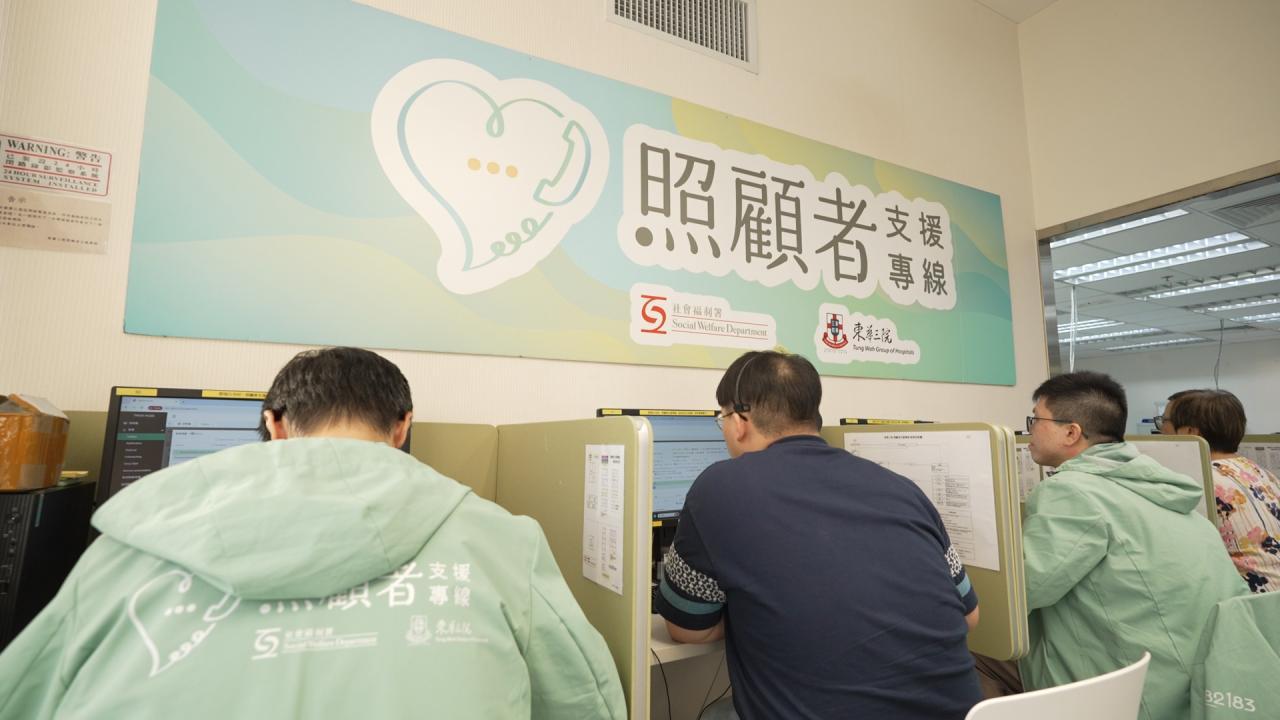Hotline eases carers' burden
Mrs Lee, 74, and her 84-year-old husband are a doubleton elderly household relying on Comprehensive Social Security Assistance. Earlier this year, Mrs Lee underwent knee replacement surgery and received respite services at a care home. Dependent on a wheelchair, she requires regular hospital visits for follow-up care and physiotherapy, posing logistical and financial challenges.
“At first, I could not find anyone to help me and I was struggling financially,” Mrs Lee explained.
“My relatives and friends were busy working, while my husband, being elderly, was unable to help either. For the care home to accompany me to medical consultations, it would cost $600 per day for just five hours, plus $100 for each additional hour. I was at a complete loss as to what to do.”
Timely support
Mrs Lee’s physiotherapy is essential to prevent her from losing her mobility.
Fortunately, a relative recommended the Designated Hotline for Carer Support, 182 183, offering a glimmer of hope to the couple.
“I felt anxious and did not know where to turn," Mr Lee recounted. "I shared my situation with my sister, and she mentioned that a friend had told her about a service that could help. She gave me the phone number and encouraged me to call for assistance.”
A social worker from the hotline arranged an outreach visit, assessed the couple’s situation and approved subsidies to cover respite care and related expenses. They also organised for Mrs Lee to be escorted to appointments, and facilitated a referral for Integrated Home Care Services to ensure ongoing assistance.
Courageous step
Launched by the Social Welfare Department in 2023, the Carer Hotline operates around the clock and is staffed by social workers, who provide consultation, counselling and assistance in matching respite services. By the end of September this year, the hotline had received over 119,000 calls and referred more than 2,200 cases to relevant social welfare service units for follow-up.
Designated Hotline for Carer Support Supervisor Venus Ho said callers often begin by asking about specific services, such as meal delivery or care homes.
“We do not just provide information, we dig deeper to understand why they need these services,” she explained. “Many worry about being a burden to others, feel embarrassed about their family circumstances or believe they should be able to manage on their own.
“Many carers are reluctant to take a step back because they fear their families might misunderstand and think they have abandoned their caregiving duties. We hope they realise that the hotline acts like a relay baton, so when they are exhausted and feel they cannot go on, they can pass the baton to us. We will walk alongside them, giving them space to rest and recharge so they can return to their caregiving responsibilities with renewed energy.”
Ms Ho emphasised that asking for help is not a sign of weakness, but a positive and courageous step.
Enhanced care
Social Welfare Department Chief Social Work Officer (Rehabilitation & Medical Social Services) Kelvin Tam outlined that the department promotes respite services through the Carer Hotline and District Services & Community Care Teams (Care Teams), encouraging carers to call the hotline for matching of respite services. Transportation subsidies are also available to make it easier for elderly residents and persons with disabilities to utilise respite services.
To build confidence and familiarity, the Social Welfare Department encourages local service units to organise visits and experiential programmes so that care recipients can adapt to respite environments in advance.
“Many service users who participated in these programmes have expressed that respite services truly provide carers with a break, and they now understand that these services are not only for emergencies.”
The department has also launched the first phase of the Carer Support Data Platform, initially connecting its data with that of the Hospital Authority and the Housing Authority. In July, two pilot programmes commenced involving those bodies.
By the end of September, the department had received hospital admission notifications for 885 high-risk carer cases from the Hospital Authority, two of which were confirmed as needing emergency support.
As part of the pilot programme, jointly conducted by the Social Welfare Department and the Housing Authority, Care Teams have visited over 10,000 high-risk elderly and carer households, and have referred more than 640 cases to social welfare service units.




